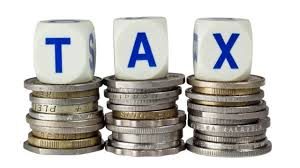 Author:
Author:
In line with expectations Finance Minister Tito Mboweni did not increase tax rates for income tax, Vat and capital gains tax. For the first time in many years, tax rates have remained unchanged from prior years and the only relief available to individual taxpayers has been a very small increase in the primary, secondary and tertiary rebates. The effect of this is that the tax threshold for individual taxpayers has increased from R78 150 to R79 000. Taxpayers who are fortunate enough to receive inflationary remuneration increases will for the first time in many years not benefit from any tax bracket relief and may in fact move into a different tax bracket by virtue of their increases.
Tax proposals identified for the upcoming legislative cycle include the following:
- Aligning provident and provident preservation fund tax exempt annuities such that the exempt part of the annuity is calculated on the same basis as for other funds
- Allowing South African employers to reduce their PAYE contributions for employees who are subject to withholding taxes in their host countries where they work abroad
- Reviewing the non-resident employer registration requirements where non-resident employers employ staff in South Africa
- Correcting anomalies arising from applying value shifting rules
- Refining provisions around interest deductions for debt funded share acquisitions
- Reviewing the special economic zone tax regime in respect of the anti-avoidance legislation prohibiting a company from qualifying for the 15% tax rate in the event that it has related party transactions of more than 20% in the form of deductible expenditure or income.
There will also be an amendment dealing with share buy-backs and dividend stripping transactions. A typical arrangement is one in which the target company distributes a substantial dividend to its current company shareholding and the company subsequently issues shares to a third party. As a result the value of the current company shareholder in the shares of the target company are diluted and these shares are not immediately disposed of. To curb this, new rules governing share buy-backs and dividend stripping will be introduced with immediate effect.
It remains to be seen whether these new proposals and the additional revenue achieved by not granting inflationary adjustments to tax rates will be sufficient to convince the rating agencies to retain the current ratings. The government faces a year of further sluggish economic growth and state owned enterprises which absorb massive amounts of taxpayers� funds, often to operate inefficiently and unprofitably. We need to fasten our seat belts for another lap around the track.
